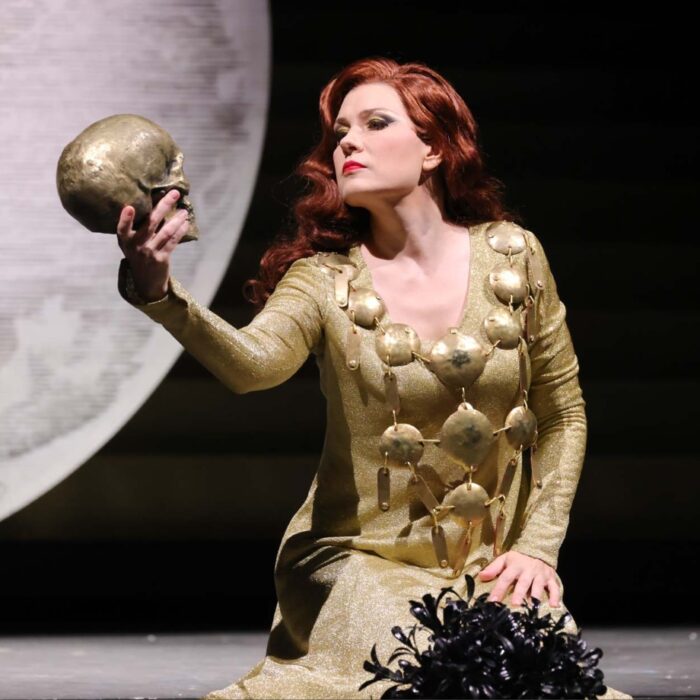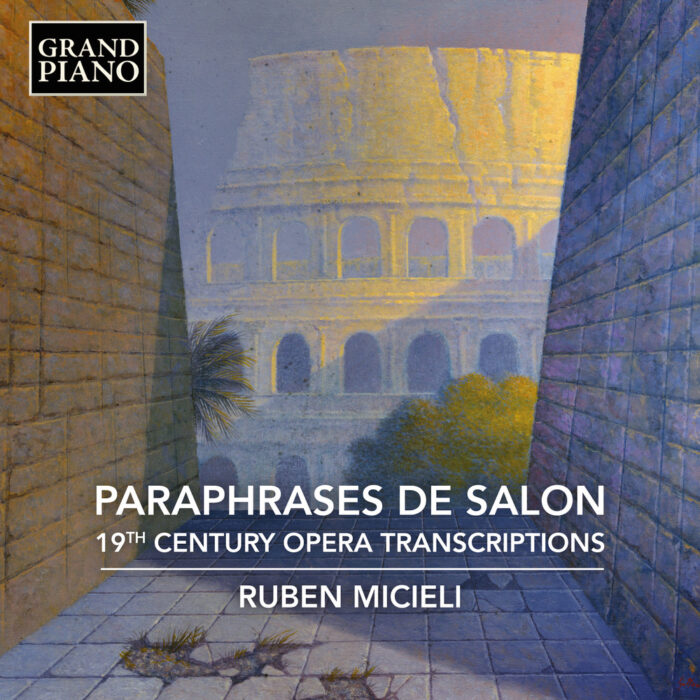
CD Review: Jonathan Tetelman’s ‘Arias’
By Bob DieschburgThere is no doubt Jonathan Tetelman’s “Arias” is one of the most sensational solo debuts in past months, as it combines the infinitely rich and malleable voice of a dark tenore lirico with a level of artistic maturity that is nothing short of exceptional.
A Magisterial Debut
Produced for Deutsche Grammophon the album offers a selection of French and mostly Italian arias which not only cover some 70 years of musical history but also have their own set of technical, dramatic, and – for Bizet and Massenet – linguistic demands. Between “I Due Foscari” (1844) and Zandonai’s “Francesca da Rimini” (1913) it features warhorses like “Ah sì ben mio” and its cabaletta of the “Pira,” the tour de force aria of “Cielo e mar,” Werther’s “Pourquoi me réveiller,” and the Romantic “M’apparì” (translated, as is customary, from Flotow’s original “Ach, so fromm”).
Tetelman sings them masterfully and infuses each role with his distinct sense of lyricism. The latter is evidently based on his infallible grasp of musical timing (including the use of rubato) combined with a solid legato technique on which he can rely to make his delivery so sound in, for instance, “Amor ti vieta” – whose cantabile tests the tenoral break of registers (around F and G) and is filled with the need for dynamic variation.
The tenor, however, fuses whatever natural break of the voice there is into a sustained line with a baritonal core and metallic ring towards the top.
Take Maurizio’s “La dolcissima effigie” from the first act of “Adriana Lecouvreur.” The elan with which he broadly phrases the climactic “vincitor” casts him as the fervent lover, relentlessly passionate and mellifluous, complete with chromatic nuance and a dramatically significant use of the mezza voce.
The Romantic Hero
The same intensity pervades the duet from “Francesca da Rimini” in which he relives the emotional heat from his run at the Deutsche Oper in Berlin in 2021 (published by Naxos in early 2022). Partnered by the excellent Vida Miknevičiūtė, he navigates the intricacies of Zandonai’s notoriously taxing score with astounding maturity and technical control.
On the other hand, “Cielo e mar” to which DG has released a video on YouTube sets a more restrained and almost meditative tone. It dials back on the clarion sound of its most exposed passages, including the opening which Tetelman attacks as marked, that is piano and not as a veristic outcry ante litteram.
The album’s most formidable moments, however, are saved until last. “Ah sì ben mio” and “Di quella pira” are a demonstration of vocal brilliance on par with some of the greatest spinto tenors in recent memory.
Again, the phrasing is heroic and lush at will (“cantabile con espressione” in the words of Verdi), as the line remains firm even when lifting the voice above the passaggio in a single breath. The overall pathos and his inclination to proverbially “go all in” make for an undeniably charismatic, if not explosive Manrico whose final C in the “Pira” is easily one of the most spectacular on record.
Champion of Opera?
With “Arias” Jonathan Tetelman has introduced himself as one of the leading singers of his generation. The voice is extremely phonogenic, secure, and – from what the available videos suggest – reveals itself generously sized in a live setting.
I am personally looking forward to hearing him at the opera house for the first time and, in the long term, see him break into a wide repertoire that not only encompasses the select roles from his debut album but also “La Fanciulla del West,” “Turandot,” “Aida,” and – why not? – “Lohengrin.” In Jonathan Tetelman opera may have found its new champion.


